8 Quick + Simple Ways to Help Your Anxious Child Calm Down
My 6-year-old has been struggling lately. Every other week, she lives with us. The other weeks, she lives with her dad and stepmom.
She’s always had a hard time being away from us for a whole week, but her anxious feelings seem to be getting worse.
For the last few months, she hasn’t been eating much on Sundays, the day before she switches back to the other house. On Monday mornings – our last morning before she heads to school and a week away from us – she won’t eat anything. We’ve tried pancakes, muffins – anything to get her to just eat.
Nope.
And now she’s having a hard time in another area: sleep.
Bonus: As a bonus for joining my weekly newsletter, get this free checklist to help you watch for 30 hidden signs of anxiety in your child.
The Bedtime Battle You Don’t Expect
When it’s time to say good night, she gets frantic.
She asks for one more hug, again and again. Tears well up in her eyes. She says she doesn’t want to leave me.
Not just on her last night at our house – every single night.
It’s like she doesn’t trust I’ll be there in the morning when she wakes up.
She had the typical separation anxiety as a toddler, but it got more intense after she started splitting her time between two houses.
Then as we settled into a new life with new routines, her separation anxiety went away.
Four years later, it’s back with a vengeance.
Bedtime is now the ultimate struggle.
On top of that, she wakes me up several times a night. Nothing I say helps in that moment because she’s an emotional wreck.
Related: 30 Hidden Signs of Anxiety in Children That You Need to Know {Printable}

8 Ways to Calm an Anxious Child
Neither of us were getting enough sleep. It was time for help.
I researched nighttime anxiety in kids. I scheduled a pediatrician visit and talked to the doctor about what’s going on. I searched for tools to help kids cope with anxious feelings.
Here are the best tips I found in my research. We started all these recently, and they’re helping so much already. My daughter has had only one middle-of-the-night wake-up since we started using these techniques.
If your child is struggling with anxious feelings from separation anxiety to nighttime fears, reading this post will give you the tools to help your child. Even better, your child will start to learn how to manage their own stress when they’re feeling anxious or scared.
1. Name the Bad Feelings
This suggestion came from our doctor, and it’s a common tip for helping children with anxious feelings.
Get your kid to think up a silly name for the bad feelings they’re having. For example: Bob.
Then tell your kid to boss those bad feelings around.
“Bob, stop making me feel like that!”
Or: “Go away, Bob!”
(I suggested my child name her bad feelings “Voldemort.” She decided to stick with “Bob” instead.)
2. Shhh…
I made the mistake of thinking logic would help. I explained she was safe. I wasn’t going anywhere. Our bodies needed sleep.
But my child’s brain was experiencing real stress. Logic didn’t do squat.
In fact, my rational explanations seemed to make her anxious feelings worse.
Then when my logical appeals didn’t help her, I got frustrated, and that really didn’t help.
This is what I did instead: I just stopped talking. I gave lots of hugs and kisses. And listened.
From the experts:
Recognize that the fear is real. As trivial as a fear may seem, it feels real to your child and it’s causing him or her to feel anxious and afraid…Never belittle the fear as a way of forcing your child to overcome it. Saying, “Don’t be ridiculous! There are no monsters in your closet!” may get your child to go to bed, but it won’t make the fear go away.
Dr. D’Arcy Lyness for KidsHealth
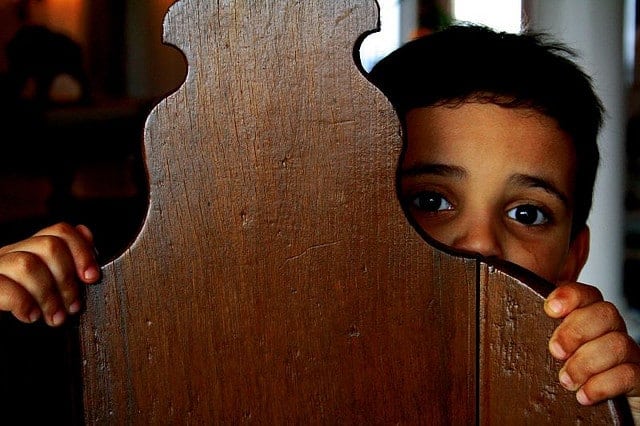
3. Give Your Kid a Friend
Our doctor also suggested this one.
Let your kid pick a doll or stuffed animal, or even something like a bracelet.
In times of stress, encourage your child to find comfort in this special object. Research shows this helps kids with nighttime fears and sleep problems. Especially in cases of shared custody, the child can find it helpful to have an object they take between both houses that always travels with them.
When my child was anxious about starting kindergarten, we got matching bracelets, I wrote her a special poem, and it worked like magic.
To help with these new sleep problems, we found a miniature teddy bear from when she was a toddler, and she’s been sleeping with it at night.
Then on Monday mornings, we pack it in her backpack to take to her other house for the week.
4. Get a Straw and a Button
Seems random, but stick with me.
In one study, teaching kids to blow into a party blower reduced anxiety in 40 percent of the kids who tried it. Like this†:
But I didn’t have a party blower on hand, so I found a pretty paper straw and a button instead.
Well before bedtime, I showed my child how to blow through the straw to move the button across her nightstand. This trick forced her to take a big deep breath and let it out slowly. Too fast, and the button would fly off the nightstand.
But what if you don’t have your props around, and your child needs help calming down? My child absolutely loves the breathing technique from the book What to Do When You Worry Too Much: A Kid’s Guide to Overcoming Anxiety, which is a great book to have on hand for an anxious child anyway!
Some parents have also had luck with teaching their kids to blow bubbles when they get stressed out.
5. Make a Photo Album
When my child is feeling upset, it helps her to look at pictures of her baby sister. How can you feel anxious when you’re looking at such cuteness?
Because I’m not very crafty, I just loaded up the iPad with a bunch of family photos. My child can flip through the album as much as she wants.
But if you think your child would benefit from a physical photo book, check out this tutorial from my friend Allison about how to make a simple DIY photo book.
6. Record Yourself
I downloaded an app to our iPad called Super Notes. You can use this app to take notes or record voice notes.
When my kids were busy, I took the iPad into my bedroom, closed the door, and sat down to record a message for my child.
This is what I said:
“You are safe. I love you. I can’t wait to see you in the morning, and also right now your body needs some sleep. Breathe in until your belly feels full, then blow it out slowly. Feel your body sink deeper into the bed. Try that two more times. If you still can’t sleep, use the other tricks we practiced. I love you.”
In the middle of the night, she can replay the recording.
One morning, she told me she ended up playing it five times in a row!
7. Make a Calm-Down Jar
In the middle of the night, it wouldn’t have helped my child go back to sleep if she had to turn on bright lights in order to use a calm-down jar.
Which is why I absolutely love this glowing bedtime bottle!
After you make a calm-down jar for bedtime, teach your child to shake the bottle and then count as many stars as possible as they float back down to the bottom.
Here’s another great idea: a LEGO calm-down jar. Perfect for LEGO fans!
8. Build a Toolbox
After you read through these tips to see what will be a good fit for your child, review those ideas with them to make sure they understand all the tools.
Practice each one.
Then in the moment when they’re feeling anxious or scared, they’ll be confident and prepared to use their toolbox.
If you like the idea of putting together a physical toolkit, check out Create Your Own Anti-Anxiety Kit for Children from my friend Sharla. She’s put together an amazing resource with a ton more ideas for how you can help your child cope with anxious feelings.
Get Your Free Printable
Use this checklist to evaluate your child for signs and symptoms of anxiety, then follow up with your child’s doctor.
- Get the free checklist. Join my weekly-ish newsletter and as a bonus, you’ll get the printable! Just click here to get it and subscribe.
- Print and fill out the checklist. You may want to jot down notes in the margins and take a few days to watch and listen for the signs. Fill in the appropriate bubble for any day you notice that behavior.
- Make an appointment with your child’s doctor. If your child’s doctor doesn’t seem to take you seriously, get a second opinion.
- Help your child calm down. While you wait to meet with your child’s doctor, you can help your child cope with anxious feelings using the strategies in this post.
Here’s a sneak peek of your checklist:
Want More?
Check out 30 Hidden Signs of Anxiety in Children That You Need to Know.
Before you go, get my FREE cheat sheet: 75 Positive Phrases Every Child Needs to Hear
Your Turn
When your child is stressed out or feeling anxious, what helps them? Share in a comment below!

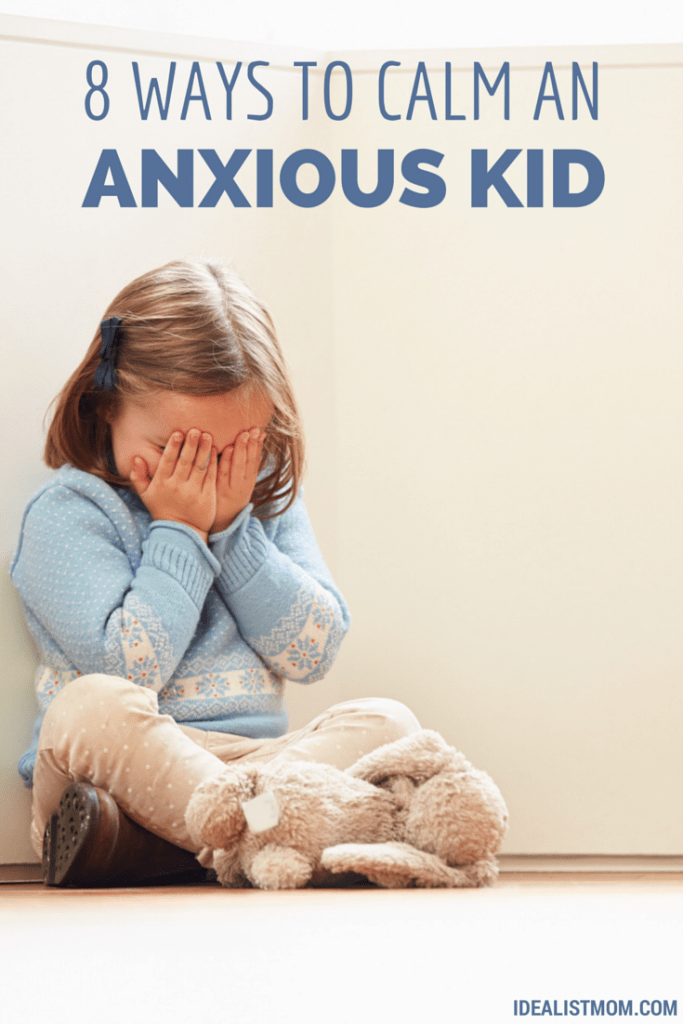

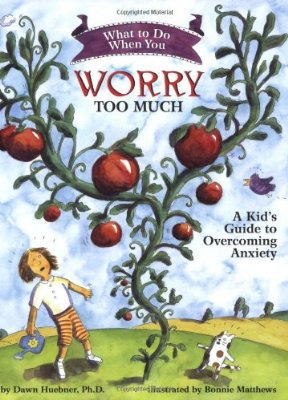
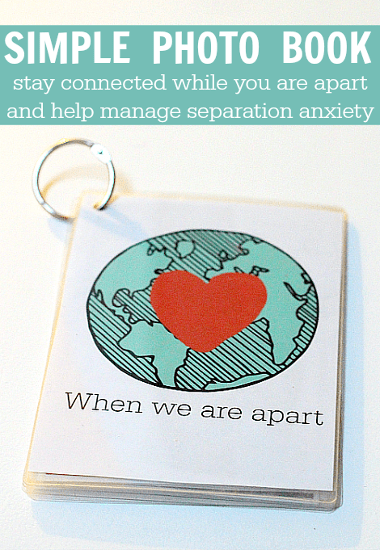

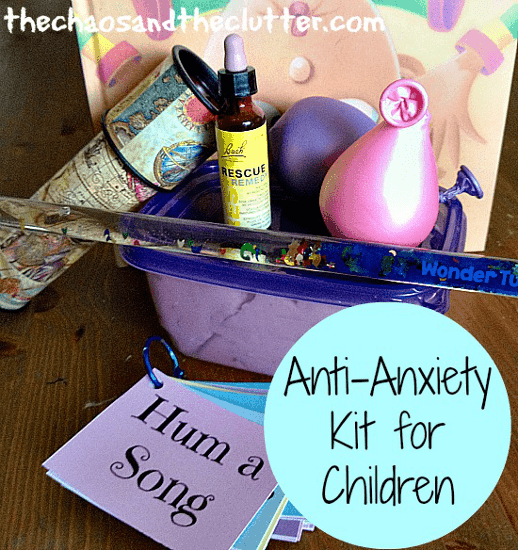
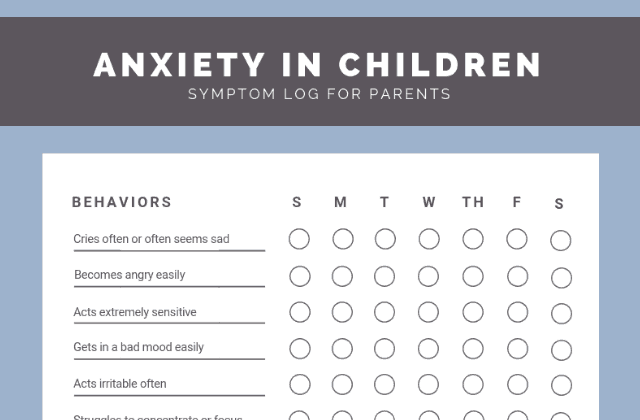

So many great ideas here! Thank you!
One of my ten year olds still struggles with anxiety, especially around sleeping… but we are working on strategies that she can use to help herself and slowly slowly making progress!
I received custody of my four grand girls about two weeks ago, ages 3, 6, 9, and 11. Each one of them has dealt with the same anxiety issues. I wasn’t sure how to handle them. Your tips are so helpful! I am going to try these tips to see what works for each girl as they are each unique in her own way. Thank you so much for this timely post!!
I am glad to hear that these ideas are helping Abby. They are great suggestions that I’ll be sharing via K12’s Pinterest in hopes that they help other families as well.
Our poor children. Paying for their parents mistakes…….Our job is to make them feel safe. As a generation we are failing miserably.
Hi Kelly, thanks for sharing these tips. My boy shares many similar anxieties and I have to admit I really struggled with helping him manage them. I’ll be sure to try these ideas with him, your advice with homework and learning has helped so much already. I will tweet you a link to a children’s meditation CD we all listen to when things get so hectic and we need some help to calm down.
In response to a previous commenter, I think a child can have the most stable (dare I say sterile) family environment and still have anxieties.
Just as effective for people who are older! I used some of them myself to be honest.
Thank you for these wonderful suggestions!
I know I’m a little late to the discussion, but having struggled with anxiety issues myself, I’ve often found calming piano music to really do the trick (a favorite composer of mine is Ludovico Einauldi – his pieces are gorgeous!). Also, maybe using a safety blanket or stuffed animal each night to help her sleep could relieve some stress; when I babysit toddlers who are afraid of the dark or monsters under their bed, I tell them that their blanket is like a magic fortress and nothing can get to them while they sleep and they nod off within a couple of minutes!
Great tips. Thank you!
Thank you for sharing these. I cannot imagine sharing custody of my kids, but I’m sure you didn’t either. That father sounds terrible! Any parent who knows their child is suffering should be willing to give whatever they can to stop it. Thus give up co-custody if child is this affected.
Couldn’t that be said about the mother, too, though?
This page is so overloaded with advertisements that it won’t load on a phone and the desktop version is even more crowded. Maybe idealist mom should cut back a little on her profit margin to make her blog actually effective.
Both my brother and I went back and forth, it does not work. No matter how much both parents love their child it simply will not work and I wish parents would figure this out. Both of us wish we had just stayed with our mom during the school year and dad during breaks or when we wanted to for a weekend. My brother would become so anxious that he would have asthma attacks.. We had good parents, but they were selfish in thinking that it could work to cause so much up and down. I hope I haven’t offended you in saying this but it may be something you should both sit down and talk to her about and ask what she would like to do, don’t follow the custody agreement if she doesn’t want to switch and vice versa. Let her choose..
This post is a lifesaver! Thank you so much Kelly, keep up the good work!
The only thing I think would greatly improve this would be to “disconnect from social media and electronic devices.” I believe it’s a huge source of anxiety for everyone.
Thank you, Kelly. It is overwhelming to watch them experience these episodes. But these are great tips to help them.
Not sure where to start. My daughter and I are are going through some hard struggles with my 6 yr old grandson. He is the only child in the home. He’s been through a lot of drama and trauma. Well we have radicated that and have moved to make a fresh start. Grandson started a new school. He is in first grade. His focus isn’t there and Struggling really bad. And his sleep is a struggle too.
I am glad I found your sight it helped me come up with some ideas. He is seeing a counselor too. Thank you and good luck on yours.
This is such a helpful post. Thank you for sharing this. So many children and adults are suffering with anxiety now and what could be more motivating than wanting to help our children. These are all great suggestions, including disconnecting from social media. I have seen a huge behavioral difference with our oldest son when we disconnect. Something else to dig in to is nutritional deficiencies. I would venture to say most everyone has them, and it’s a huge problem we face now that our food chain has ventured so far away from nutrient-dense, whole food. Eliminating processed foods and refined sugar, and introducing meditation and more time outdoors can be really effective for helping to tame anxiety issues. If we as adults feel overwhelmed with “busy” family life, imagine how our children must feel. Being busy is not all it’s cracked up to be. For our family, slow and easy is better. Cutting commitments to avoid a feeling of overwhelm has been very helpful.
This truly is a great article. Very helpful.
My daughter is 15 and was diagnosed with anxiety a few years ago after suffering with ME and a few other things. It all made sense, when she was little and so excited for her birthday she would end up with a temperature half way through her party and fall asleep on a chair. She really struggled with going to sleep, still does sometimes. Changing classes at school caused issues. She often complained of a tummy ach when she was younger and her head hurts often now. Irritable and in a bad mood most of the time, snaps at me. I can tick off so many things on your checklist, I wish I’d had this list years ago, especially when she was about 9 and had the most awful tantrums. Unfortunately she doesn’t think she has anxiety, I think because she has lived with it for so long she just thinks how she feels is normal. She’s had some counselling but didn’t feel she needed it. We have another appointment with our doctor on Monday, she’s coming up to some important exams and her anxiety is greater than ever, hoping he can help. Thank you for this, do you know of any good books for a teenager with anxiety.
When she struggled to sleep one thing that help was we would go to a happy place, her choice, she often chose a beach and I would talk about her floating on the sea, the warm breeze etc.
My daughter has always been a terrible sleeper and we have always battled with bed time get ups. We have tried everything. We did the recorded voice last night and she fell asleep over an hour before the usual! Amazing. Thank you- the first really helpful article I’ve found for this so far!! Fingers crossed it wasn’t a one off. ??
Cannot begin to tell you how much I needed to see your article today! My 6 year old is also going through a lot of this, and I’m an absolute mess trying to balance her anxiety with the necessity of being kind when she’s angry and controlling her words and actions… Thank you for sharing this! It’s not easy to admit that your child isn’t the happy ray of sunshine you want her to be, and it’s even harder to admit that a divorce has made things worse. Sincerely, thank you for reminding me that even the amazing blog-moms that I envy so much, have kiddos that struggle too… you really touched my heart today, and I’m so grateful to the ideas to help my girl.
Dear Kelly, I stumbled upon your site by chance, while looking for a rewards chart. I, too, had doubts about rewards methods and I really enjoyed reading your posts and reflections. So much wisdom, so much love and, most of all, so much creativity! Thank you for putting such amazing resources out there for us parents. Much love to you and your little one from Brazil.